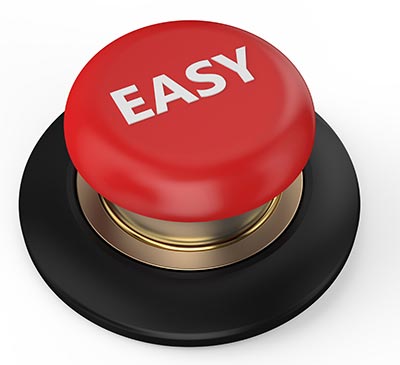Be a Better Leader by Knowing Your Truth
The truth. It’s what we expect from others, and yet, it’s often difficult to accept when we do receive it. Life teaches us that sometimes the truth hurts. And often when it does, that’s exactly what we need to create a new, better truth. What is a better truth? A better truth is what your everyday results can be—if you accept the hard truth and commit to implementing changes. Oh, boy, does that sound simple! It rarely is, though, right?
Back in 2016 I read a LinkedIn article that included a comment from an acquaintance I’d briefly met a few years before at a business conference. I reached out to that acquaintance to see how he was doing and how life and his business were treating him since we’d first met. In talking with him I learned part of his business involved analyses of a behavioral assessment he offers his clients. By the end of our call, I’d agreed to take the assessment because there was nothing to lose in learning more about my behaviors and how they affect my results.
Up to that point in my career, I’d always been a leader. I first had the privilege of leading children in my role as an elementary school teacher, and later I led teams of adults in my corporate job. I thought of myself as a leader, and while I didn’t do everything right by any means, I thought I had the whole leadership thing figured out for the most part… until my assessment results proved me wrong.
The Truth in Black and White
When those results were shared with me, I learned that on one part of the assessment, I’d been evaluated on 78 different attributes. My scores showed that realistic goal setting for others was my top-rated attribute. Of course, right? After all, I was a leader.
My lowest-scoring attribute, though? Accountability for others. What? But I was a leader. Holding others accountable is a huge part of what effective leaders do. How could I consider myself to be a strong leader if I wasn’t holding my team members accountable?
To say that I was surprised (or maybe devastated is more appropriate) is putting it mildly. I couldn’t believe what I was seeing, and I pointed out as much when my results were being shared with me.
I heard good news, though. Those scores next to each and every one of those 78 attributes represented an opportunity. I had the opportunity—if I chose to take it—to improve those scores and, therefore, my overall success as a leader.
Using Truth to Propel Yourself to Better Results
I accepted that opportunity in a millisecond (and hired my first one-to-one coach, but that’s a story for another day). I began working on how to ramp up my level of accountability for others and used my love of learning to begin diving into books, podcasts, and articles about how to be a leader who holds her teams accountable.
The Oz Principle got me started on my road to accountability. From the authors, I learned that accountability differs from responsibility. Responsibility is something that’s given to someone like a job title or the long list of bullet-pointed items that appear on all job descriptions. Our responsibilities are the to-do items on our daily lists. Responsibility is being answerable for the completion of a task.
I am a list maker, and I smile when I even think of crossing off a completed to-do item from my list. I get a sense of accomplishment as I complete those daily tasks. I thrive on responsibility, but accountability is different.
Accountability is accepting ownership for the work we do. Accountability is being answerable for the result (rather than simply the completion) of our work. As the leader of my corporate team, I believe I created a culture where my team members accepted that ownership, but my means of holding each team member consistently accountable was lacking.
The Truth of Successfully Holding Team Members Accountable
Reflecting on why I hadn’t held my team as accountable as I should have, I thought of my penchant for perfection and asked myself questions about how that perfectionism had held me back in my leadership role.
Had I let my team members off the hook too easily in my quest to have everything just right?
Did I lack belief that they could successfully get the results we needed so I jumped in to do it for them?
Was I too much of a people pleaser who didn’t want the reputation of holding others’ feet to the fire?
Sadly, upon this self-reflection, I could see myself all too clearly. I knew my desire for perfection, people pleasing, and not allowing others to own their results had held me back from being the exceptional leader I could have been.
I now know that to hold others accountable leaders must set well-defined expectations that include milestones and targets to work toward. Open and honest feedback is needed consistently which means it should occur when projects are rolling along nicely as well as when bumps in the road are impeding the progress being made. Consequences—both positive and negative—must also be in place for each team member on a project.
I no longer work with and lead the same team day in and day out as I once did. Instead, I have the privilege of coaching team leaders in such areas as conflict resolution, time and priority management, employee engagement and mindset, and, yes, accountability for others.
Moving Forward with Invaluable Knowledge
Hindsight is 20/20. It’s easy to see now how I could have been a more effective leader in the past. Instead of spending too much time on the shoulda/coulda/woulda thoughts, though, I prefer to take what I’ve learned from both experts and past experience to improve the ways I hold my clients accountable and also to guide them to do the same.
And that assessment that started it all back in 2016? I now offer it to my clients. And as I coach and guide them to improve in areas most important to them, I also continue my own journey of self-improvement. I’m committed to putting in the work needed to hold myself and others accountable.
Did you read part one of the Becoming a Leader series? Take a look for insight on what makes someone a leader others will follow.





